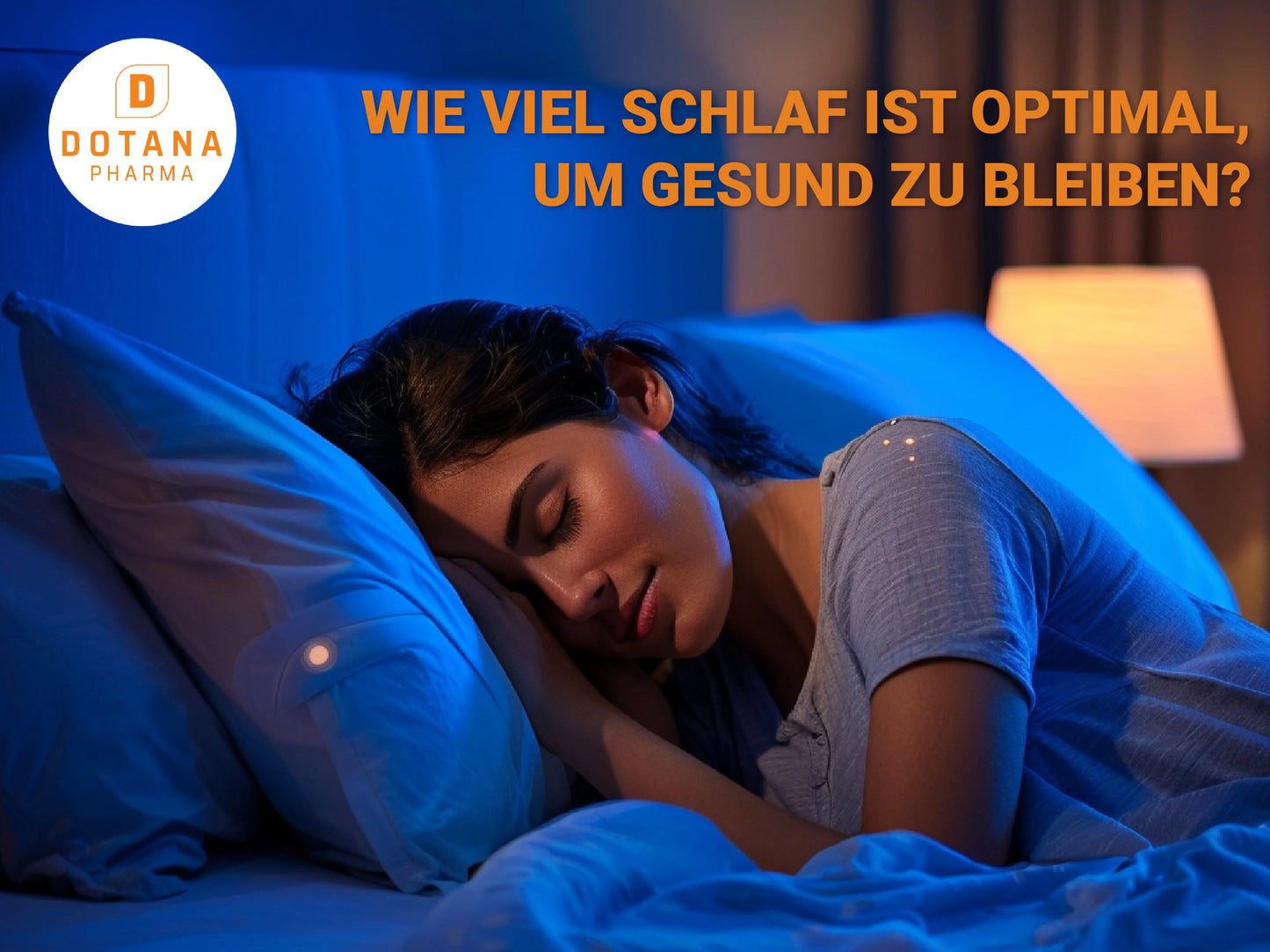
Irregular work hours, distractions from digital media, professional or personal problems: Many factors make it difficult for us to fall asleep and cause us to stay awake too long. Everyone knows the immediate consequences of sleep deprivation: exhaustion, lack of motivation, and difficulty concentrating. According to estimates by the National Institutes of Health in the United States, approximately 30% of the population suffers from sleep disorders.
The risks of sleep deprivation
Chronic sleep deprivation has negative effects on our mental, emotional, and physical health. According to psychologist and sleep researcher Hans-Günter Weeß, even less than two hours of sleep per night increases the risk of colds, high blood pressure, and obesity. Recent studies demonstrate the enormous importance of sleep for the body's recovery and regeneration. A person who gets enough sleep is clearly more productive in everyday life, has a stronger immune system, and an overall better mood.
Optimal sleep duration varies from person to person
There are many reasons why good sleep is important. However, there is no universally applicable optimal sleep duration for everyone. This fundamentally depends on both genetic factors and sleep quality.
The nonprofit organization National Sleep Foundation in the USA has conducted one of the largest scientific studies to date on optimal sleep duration. The 18 experts on the research team agree that optimal sleep duration varies from person to person and is influenced by many factors. Nevertheless, the researchers were able to provide recommendations for minimum, average, and maximum sleep duration.
Seven to nine hours of sleep for adults
While infants need 14 to 17 hours of sleep per day, school-age children need 9 to 11 hours, and teenagers need 8 to 10 hours. From adulthood onward, an average sleep duration of 7 to 9 hours is recommended, decreasing to 7 to 8 hours at age 65 (key sleep data is presented in our infographic). The following chart shows the recommended sleep durations at different life stages (source: Fotolia; author: Good Studio).

Determination of individual sleep duration
Actual sleep duration varies by country. While the French sleep an average of 8.8 hours per day, the Japanese and Koreans average 7.8 hours per day. The average sleep duration in 30 OECD countries is 8.4 hours per day (Organisation for Economic Co-operation and Development (2009): Social Survey 2009).
Nevertheless, sleep needs depend heavily on genetic factors and therefore vary considerably from person to person. Someone who can concentrate for most of the day and feels physically healthy and emotionally balanced may have found their ideal sleep duration. The following tips can help you determine your optimal sleep duration:
• Listen to your circadian rhythm and go to bed at the first sign of fatigue for the first three days. • Avoid harmful products like alcohol and cigarettes in the evening. • Sleep naturally until you wake up and make sure you feel rested. • Take three days, count the hours you sleep, and calculate the average sleep duration. The result will show the amount of sleep needed to feel refreshed and energized in the morning.
Sleep is the most ingenious invention
Whether you sleep little or a lot says nothing about your personality or overall performance. Some famous examples from history demonstrate this: While Napoleon boasted that he didn't need to sleep more than five hours a day, Albert Einstein, who slept 12 hours a day, became one of the most famous physicists of the 20th century. However, most of us agree with the German poet Heinrich Heine: "Sleep is the most ingenious invention."
To support sleep naturally, you can use products like MENTA PRO to aid sleep.
